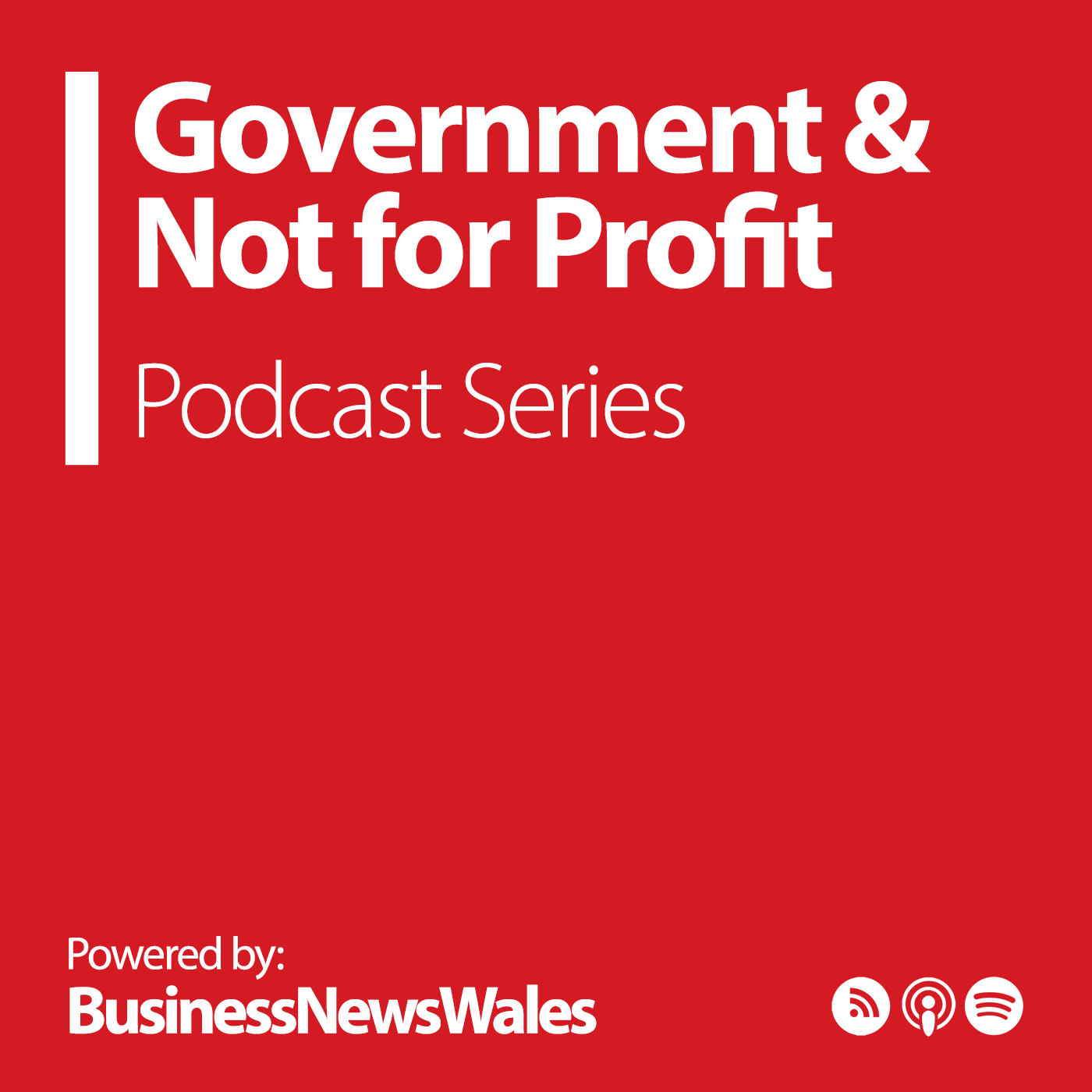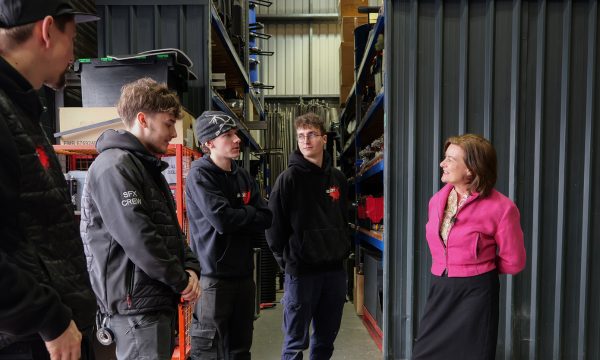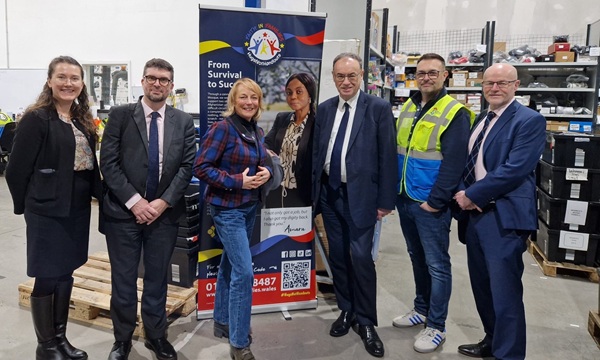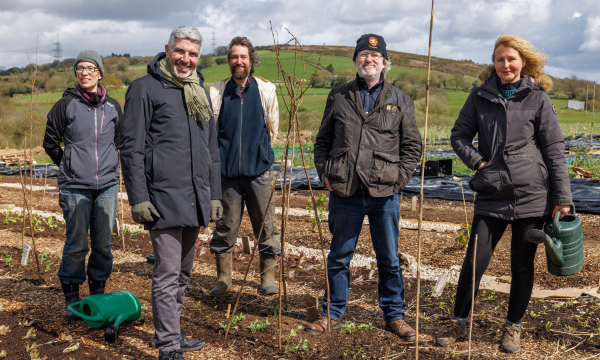
GUEST COLUMN:
Dr Edward Thomas Jones
Chair of Cymdeithas Elusennol Ynys Mon,
Senior Lecturer in Economics, Bangor Business School,
Bangor University

Charities across Wales play a central role in supporting communities and improving lives, with their work shaped by the diverse needs of the people they serve.
The recent transition by Cymdeithas Elusennol Ynys Môn to community-led governance highlights a growing recognition that placing local voices at the heart of decision-making is key to ensuring charities remain effective, accountable, and resilient.
The vital role of charities in Welsh communities
Charities across Wales make a significant contribution to public life by supporting communities, delivering vital services, and enriching the wellbeing of people across the country. Charities in Wales operate across a wide and diverse range of sectors, reflecting the varied needs and aspirations of the communities they serve. Their work covers key areas including the natural environment, skills, health and social care, education, homelessness, and arts, culture, and heritage, among others.
For example, Tŷ Hafan provides compassionate care for children and young people with life-limiting conditions, helping them live their lives to the fullest and offering end-of-life and bereavement support when needed. Similarly, Wales Air Ambulance delivers critical, lifesaving medical care across the country, operating 24 hours a day to reach those in urgent need.
According to the Charity Commission, 4,775 charities are currently registered and operating in Wales. In 2023, these organisations collectively engaged 63,827 volunteers and employed 28,645 staff, generating a combined income of just over £2.28 billion. While income has shown steady growth since 2019, the sector now faces significant challenges: future funding prospects are uncertain, and demand for many services continues to rise, placing increasing pressure on charities and the communities they support. Many charities are facing significant financial pressure due to the National Insurance increases introduced on 6 April 2025, which are placing a strain on their sustainability and the vital services they deliver. Now more than ever, charities depend on effective and capable governance to navigate challenges and continue delivering meaningful impact.
Embedding community voice in charity governance
Charities and for-profit businesses operate with fundamentally different goals. While businesses typically focus on generating profit, the core mission of a charity is to advance a social cause or provide a public benefit. The Board of the Charity (or often called Board of Trustees) plays a vital role in guiding the charity towards its mission and helps shape strategy and ensure the charity delivers meaningful impact.
Six core legal duties, as outlined by the Charity Commission, guide the work of the Board of Trustees. These duties emphasise strong governance, effective oversight, and sound financial stewardship, ensuring that charities operate lawfully, efficiently, and with integrity in pursuit of their mission. Alongside these legal obligations, the Charity Governance Code offers a practical framework to help charities strengthen their leadership and governance. Although not a legal requirement, this Code is widely recognised as best practice and a revised version is expected in Autumn 2025. The update aims to address emerging challenges and ensure the Code remains relevant and practical for charities of all sizes.
However, for a charity to truly make a meaningful impact, it’s essential that the community it serves is actively involved in shaping its strategy and informing its decision-making. Listening to and reflecting local voices helps ensure the charity’s work remains relevant, responsive, and rooted in real needs.
Community involvement in charity governance is increasingly recognised as essential to ensuring that the organisations are effective, accountable, and responsive. By actively engaging with the communities they serve, charities are better equipped to meet local needs, build transparency, and foster trust – key ingredients for long-term sustainability and meaningful impact.
Strengthening Boards through community insight
There are many meaningful ways to ensure that community voices are reflected in the work of a Board of Trustees. One of the most direct approaches is to recruit trustees from the communities the charity serves, bringing in diverse backgrounds and lived experiences. This can be achieved through open and inclusive recruitment processes that reach beyond traditional networks. Another effective method is to establish community advisory panels that regularly contribute to Board discussions. These panels can include young people, service users, and individuals from marginalised groups, helping to broaden perspectives and strengthen decision-making.
It’s important that decisions made by a Board of Trustees are shared openly with the community, supported by accessible channels for feedback, such as suggestion boxes or online forms. Charities can also create opportunities for deeper engagement through membership and community forums, listening sessions, or town halls. Tools such surveys, focus groups, and interviews can help build a clearer understanding of local needs and perspectives. In some cases, participatory budgeting or collaborative decision-making models may be appropriate, allowing communities to play a direct role in shaping priorities and resource allocation.
Building Trustee capacity for inclusive and impactful governance
Whatever approach is taken, it’s important that charities develop a structure that works for them and ensures community voices are genuinely heard and considered by the Board of Trustees. To ensure a charity delivers its mission effectively and makes a lasting impact, all trustees need a solid understanding of governance, finance, strategy, and risk. But also important is ensuring that their decisions reflect the aspirations and challenges of the communities they serve. Supporting trustees with training in inclusive governance, unconscious bias, and community engagement can help embed these perspectives into decision-making. A wealth of support is available – much of it free – to help trustees build their skills. During Trustees’ Week, a wide variety of workshops, webinars, and networking events offer valuable opportunities to strengthen expertise in governance, finance, strategy, and inclusive leadership. Above all, charities need volunteers and trustees who bring energy, dedication, and a genuine commitment to making a positive impact. By actively incorporating community voices, charities can continue to play a vital role in public life, supporting communities, delivering essential services, and enhancing wellbeing and the natural environment across Wales.












